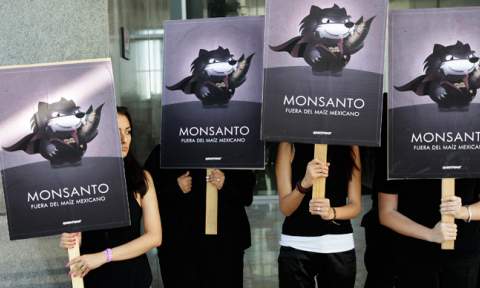
Eager to provide better climate and weather data to its farmers, agriculture giant Monsanto has bought The Climate Corporation for $930 million.
The Climate Corporation is a financial services company that collects weather and climate data from 2.5 million separate locations, and then combines that data with 150 billion soil observations and multiple forecasts from major climate change models to determine risk analysis for farmers for a given period of time. Using that analysis, the company provides farmers with insurance that protects them in the case of extreme weather. It also provides the data to farmers to help them figure out, in any given year, the best seeds to plant as well as the time of year to plant and harvest.
Monsanto, a company known for its widespread use of Genetically Modified Organisms, including Roundup Ready crops, is hoping that that data — all 50 terabytes of it — will help them determine how extreme weather events will affect their farmers’ crops.
Monsanto’s decision to invest in climate data isn’t surprising. Climate change poses a huge risk to farming around the world, as extreme weather and shifting weather patterns create unpredictable positions for farmers. Britain’s National Farmers’ Union claims climate change is the largest risk to farming the country faces, and agriculture in Australia is also likely to suffer as the climate warms. In the U.S., drought has wreaked havoc on crops in the last decade, while record-breaking rains this year drenched crops in the Southeast.
Kerry Preete, VP of Global Strategy for Monsanto, told Tech Crunch that the number one challenge the farmers he’s talked to throughout his career cite is how to deal with the variability of climate.
“As we’ve seen over the last several years, we think weather patterns are becoming more erratic,” he said. “It places a huge challenge on farmers with their production. We think a lot of the risk can be mitigated out of weather impacts through information.”
Climate Corporation’s work to advise and insure farmers against extreme weather risks also isn’t surprising — though pundits and politicians continue to grapple over the validity of climate science, insurance companies have for years treated climate change as fact.
http://www.nationofchange.org/monsanto-getting-climate-data-business-1381069973
No comments:
Post a Comment